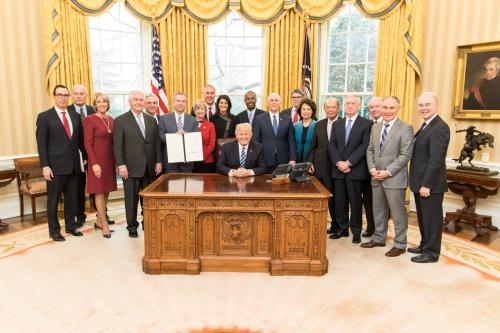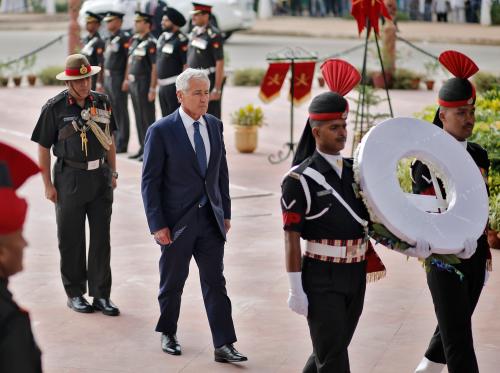Content from the Brookings Institution India Center is now archived. After seven years of an impactful partnership, as of September 11, 2020, Brookings India is now the Centre for Social and Economic Progress, an independent public policy institution based in India.
This article first appeared in Mint. Brookings India is an independent, non-partisan public policy research organisation based in New Delhi. The views are of the author(s).
In keeping with his reputation as the global disrupter-in-chief, US President Donald Trump’s unprecedented acceptance of a face-to-face meeting with North Korea’s strongman Kim Jong-un in May has created a political whiplash. While most experts have only focused on the nuclear dimension, this initiative, if it is to materialize, is likely to have international repercussions well beyond the nuclear realm.
In its most optimistic rendering, the Kim-Trump summit might be akin to the dramatic US opening up to China by president Richard Nixon in 1971-72. Nixon’s trip to China was a high-stakes gamble as there was no certainty that he would meet chairman Mao Zedong. However, the run-up to the historic Nixon-Mao summit and beyond significantly changed the course of international relations. Washington infamously tilted towards Pakistan and China, turned a blind eye to the ongoing brutality of the Cultural Revolution, supported China’s permanent membership of the UN Security Council, hastened the end of the Cold War, and contributed to China’s eventual economic rise. Consequently, today China has emerged as an economic and, increasingly, strategic peer to the US.
The upcoming summit’s most pessimistic outcome might be like the first and, perhaps, most disastrous meeting of the Cold War between the young and newly elected US president John F. Kennedy and the older and experienced Soviet dictator Nikita Khrushchev in Vienna in June 1961. The seasoned communist apparatchik pummelled and harangued the neophyte president. After the summit, Khrushchev dismissed the youthful president as “too intelligent and too weak” while Kennedy, a seasoned veteran of World War II, admitted that the meeting was the “roughest thing in my life”. Partly on account of his impression of Kennedy’s lack of resolve, Khrushchev felt emboldened to plant nuclear-tipped missiles in Cuba, engage in an eyeball-to-eyeball confrontation, and risk the possibility of a nuclear war.
To read more, please click here.








Commentary
Op-edWhat can be expected from a Trump-Kim meeting?
March 26, 2018